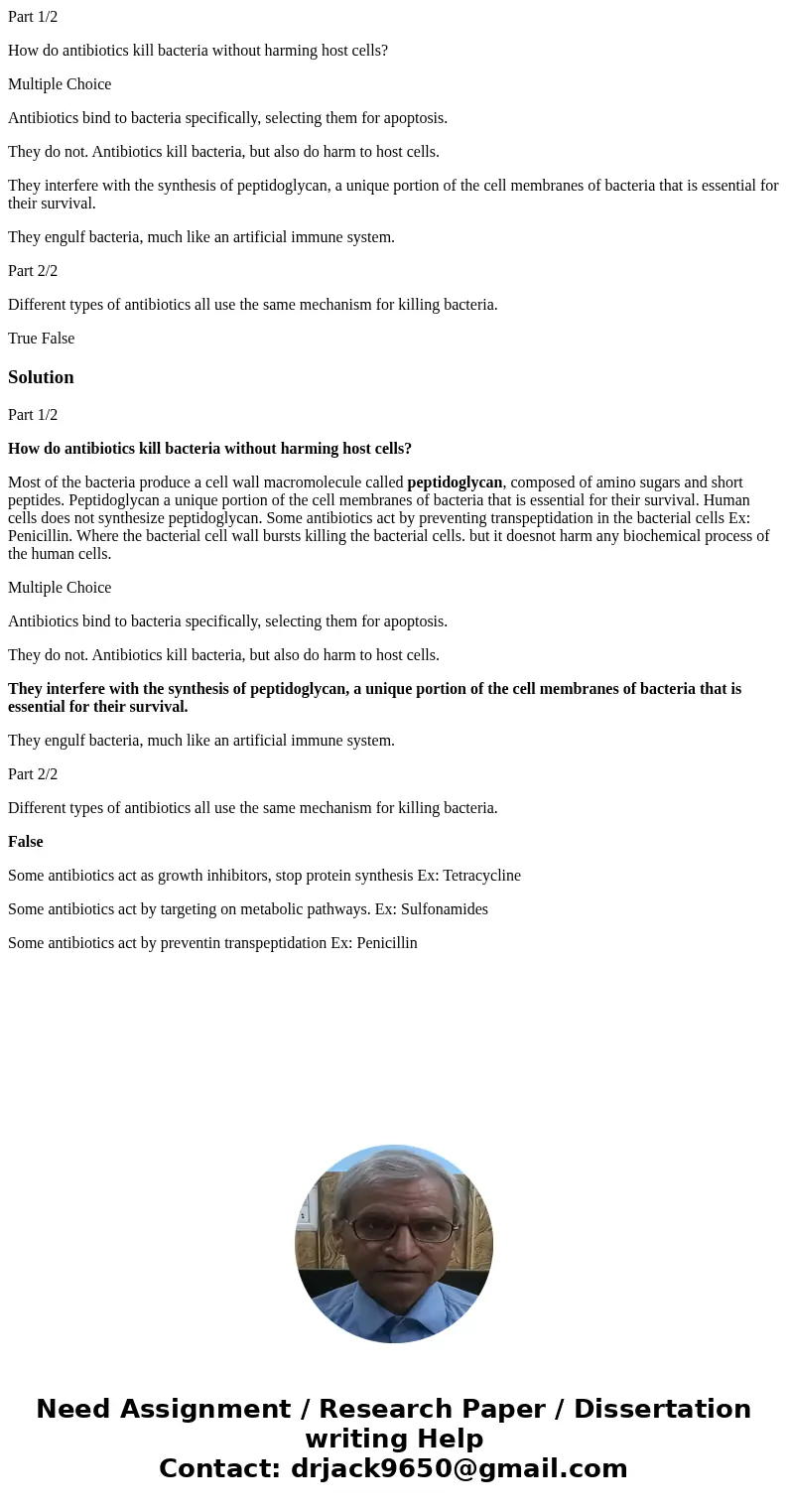Part 12 How do antibiotics kill bacteria without harming hos
Part 1/2
How do antibiotics kill bacteria without harming host cells?
Multiple Choice
Antibiotics bind to bacteria specifically, selecting them for apoptosis.
They do not. Antibiotics kill bacteria, but also do harm to host cells.
They interfere with the synthesis of peptidoglycan, a unique portion of the cell membranes of bacteria that is essential for their survival.
They engulf bacteria, much like an artificial immune system.
Part 2/2
Different types of antibiotics all use the same mechanism for killing bacteria.
True False
Solution
Part 1/2
How do antibiotics kill bacteria without harming host cells?
Most of the bacteria produce a cell wall macromolecule called peptidoglycan, composed of amino sugars and short peptides. Peptidoglycan a unique portion of the cell membranes of bacteria that is essential for their survival. Human cells does not synthesize peptidoglycan. Some antibiotics act by preventing transpeptidation in the bacterial cells Ex: Penicillin. Where the bacterial cell wall bursts killing the bacterial cells. but it doesnot harm any biochemical process of the human cells.
Multiple Choice
Antibiotics bind to bacteria specifically, selecting them for apoptosis.
They do not. Antibiotics kill bacteria, but also do harm to host cells.
They interfere with the synthesis of peptidoglycan, a unique portion of the cell membranes of bacteria that is essential for their survival.
They engulf bacteria, much like an artificial immune system.
Part 2/2
Different types of antibiotics all use the same mechanism for killing bacteria.
False
Some antibiotics act as growth inhibitors, stop protein synthesis Ex: Tetracycline
Some antibiotics act by targeting on metabolic pathways. Ex: Sulfonamides
Some antibiotics act by preventin transpeptidation Ex: Penicillin

 Homework Sourse
Homework Sourse